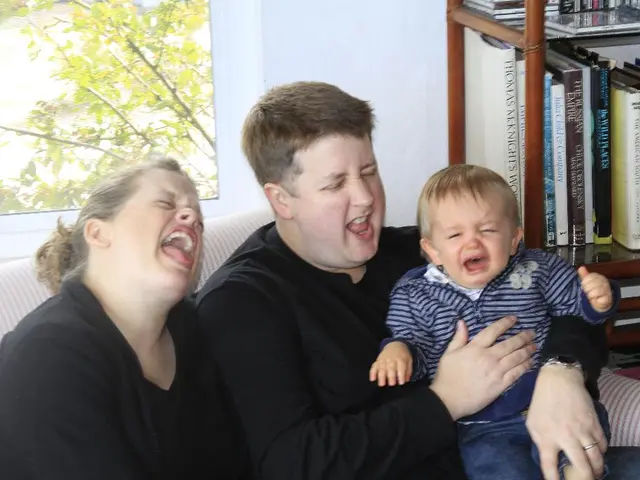"The extra work on Fuerteventura was a pleasant surprise"
Title: Gerster and Riley's Fuerteventura Adventure: The "Islands" Shoot
NTV.de chats with Gerster and Riley about the creation of "Islands" and their time on Fuerteventura.
After "Oh Boy" (2012) and "Lara" (2019), Jan-Ole Gerster delivers his third cinematic masterpiece with "Islands". This time, Sam Riley heads the cast as a lonely tennis coach in Fuerteventura, lured into the enigma of a guest's vanishing due to peculiar circumstances. The film is currently nominated for three Lolas at the German Film Awards.
During a conversation with ntv.de, Gerster and Riley discuss their shoot on the Canary Island, the destiny of the central character, and the impact of Dascha Dauenhauer's film score.
ntv.de: Sam, had you been to the Canary Islands prior to the "Islands" shoot?
Sam Riley: My grandparents planned to spend their retirement on Tenerife, and I visited them when I was twelve. That was my only experience on a Canary Island. The Fuerteventura shoot was fantastic - I enjoyed the location. I appreciate warm weather, but I didn't grow up with it. My childhood holidays were usually spent on the coast in Yorkshire. We never ventured further. I enjoy places to swim, but after eight weeks in the sun, I felt as if my character did when working at the hotel. The first three weeks were filmed at a hotel where tourists were vacationing - it was chaotic! Eventually, I yearned for winter, a coat, and a walk around the Schlachtensee, wrapped in a scarf.
Jan-Ole, you actually had the idea for "Islands" on Fuerteventura. How did that happen?
Jan-Ole Gerster: I'm always deeply impacted by places. Sometimes they're so enchanting that I feel compelled to create something there. Fuerteventura exuded both breathtaking landscapes and an outdated tourist world that piqued my interest. I quickly envisioned a tennis coach role for the film. During my vacation, I had a small apartment, and I watched a man playing tennis for hours on the beach, commenting on the game in a repetitive manner. It was like a fascinating soundscape that conveyed his life's monotony in this supposed heaven. As I'm drawn to such characters, I immediately fell in love with the idea.
Did you converse with him while you were on location, or just observed him?
Gerster: I had a brief conversation with him. What struck me as significant was his admission that this lifestyle in paradise was a form of entrapment from which he couldn't escape. The themes of flight, reality flight, and escapism are central to the film. Vacations are always a form of escape, a respite from our everyday lives. And he's attempting to escape as well, through alcohol and affairs, but he never truly liberates himself. I found this intriguing because the actual person on location continually professed, "I love it, I don't regret a single day," but he seemed lonely and socially distant.
Sam, what captivated you about the role when the offer arrived?
Riley: The chance to work on Fuerteventura was an added bonus, along with the opportunity to participate in the film. Still, the script, the narrative, and the part were my primary concerns. I read the script in a single sitting – ironically on the beach, shady, not in the sun – and knew instantly that I had to take on this role. Any actor my age would want it. The character is complex, a mix of inconsistencies and contradictions. And he's in every scene – a dream for any actor.
In real life, you're more Dave than Tom – with a loving wife and a son. Or are you?
Riley: In that regard, yes. But Tom and Dave are quite similar men who each face their own difficulties in life. Some people might be content with their situations, whereas others may always find the grass greener on the other side. I've never been entirely content with my life, always seeking something more – a different situation, a better environment. I envy successful people, even their private lives, despite not wanting their personal struggles. That's why I often prefer watching reality TV instead of my colleagues' triumphs – it's less frustrating.
Have you ever felt that way – that the grass is greener on the other side?
Riley: I believe many adults ask themselves, "What's it all about? Is this it? What am I doing?" – regardless of their wealth or lack thereof, their relationships, or their happiness. It's a universal sentiment. It feels like wisdom from the 1960s, but it holds true: personal happiness is determined by the quality of your thoughts. I don't struggle with that right now.
Not today, maybe tomorrow?
Riley: Yes, but I strive to approach it differently. A few years ago, I altered my perspective and started focusing on one day at a time. That simplifies nearly everything.
As an actor, you must sometimes look at movies and think, "Oh, that's such a fantastic role – I'd love to play it..."
Riley: Absolutely, all the time! I don't envy anyone their personal lives, but I envy their careers constantly. The filming locations seem magical, and the characters are captivating – I wish I were there, living their lives.
How did your collaboration come about?
Gerster: I fell in love with Sam when he portrayed Ian Curtis in "Control." Since then, I've been a fan, learned he lives in Berlin, and discovered we share the same agent. We set up a blind date, met, and immediately connected.
But Jan didn't choose you for the role immediately, even if it seems that way now, right?
Riley: No, he didn't immediately select me. I had to meet him at least once. He follows a three-day rule – no meetings on consecutive days. Instead, I met him in weekly intervals. On our first meeting, we didn't discuss the film as I didn't want to come across as overly eager. We talked about movies. On our second meeting, I expressed my interest in the role. And on our third meeting, we played tennis.
Really? Which one was better at tennis, you or Jan?
Riley: Jan's a much better tennis player, which is why he's interested in the history of the sport. I hadn't mastered the basics before joining the film.
Afterward, I picked up tennis lessons. It was an expensive endeavor to pay for personally, but the production company covered the costs since I also had to teach children in the film. My son occasionally accompanied me as I practiced, allowing me to observe his training and learn the proper techniques. My son still plays tennis today.
The film feels like a noir crime, but it's not. The character of Tom is intriguing...
**Gerster: The audience's empathy for the character is due in large part to Sam Riley's exceptional acting skills. The tennis coach cliché was initially perceived as one-dimensional by financial backers, but it was crucial for me that this character evolves emotionally and learns something about himself. I had a romantic vision of the character – a man reconnecting with his emotional self and discovering what's missing in his life. Sam's performance adds depth to the character, allowing us to understand his inner struggles without any direct dialogue.
The film predominantly features English dialogue, with sporadic German and Spanish phrases...
**Gerster: I've always enjoyed watching movies in their original language, especially in English. English dialogue lends a more casual quality to characters' conversations. I sought to expand my creative horizons and create something in English. The film's language choice was also motivated by the desire to extend the movie's reach beyond a German audience. It's increasingly challenging to place German films with the domestic audience alone; the films must now venture on a much broader journey. German cinema's appeal has shifted over the past ten to twenty years, and English dialogue aids in reaching international audiences.
The screenplay was crafted with Blaž Kutin and Lawrie Doran, not entirely in English...
Gerster: I began writing the script with Blaž, whom I met through a script lab. We shared a taste in film and became friends. We both write and converse in what we call "European English" – a term that acknowledges our imperfect command of the language but allows us to work collaboratively. When it came time to present the script to English actors, we brought Lawrie aboard. Lawrie refined the script's language, contributed effective dramatic elements, and became the third author. But a collaborative writing session never truly occurred.
The more familiarity there is, the smoother the creative process becomes. Investing time with the actors prior to filming is essential for clearing doubts about characters and plotlines. Visual staging heavily relies on the precision of language – incorporating brief phrases that help actors excel. Sam Riley, for instance, speaks fluent German, providing a valuable safety net during the shoot.
Music plays a pivotal role in the movie. How did the concept materialize?
Gerster: I usually listen to music while writing, and we incorporates a lot of music during production. The film's pacing and ambiance were shaped by various music choices – from 1970s film noir to Pedro Almodóvar's soundtracks. Dascha Dauenhauer's music was added later, transforming the film barnoneously.
You possess a career as a musician yourself – what was your impression when you saw the film for the first time with the completed soundtrack?
Riley: I watched the film for the first time in the cinema with the finished soundtrack and was impressed. Dascha's music was incredible – it complemented the film flawlessly. It draws inspiration from familiar tunes while remaining utterly unique. That is essential – to create something fresh.
Are you still composing music for yourself?
Riley: Yes, but not with the band. I write and record music for myself and think about releasing something. I often think that my life revolves around music in some capacity, and that loop persistently repeats itself.
- Sam Riley had only been to a Canary Island once before, as a 12-year-old visiting his grandparents in Tenerife.
- Jan-Ole Gerster was captivated by Fuerteventura's breathtaking landscapes and outdated tourist world, which inspired him to envision a tennis coach role for his film.
- During the shoot, Sam Riley felt a sense of entrapment while working at the hotel surrounded by tourists, yearning for winter and a change of scenery.
- Sam Riley was drawn to the complex and contradictory role in "Islands" and appreciated the opportunity to work in Fuerteventura, which he called a dream for any actor.







